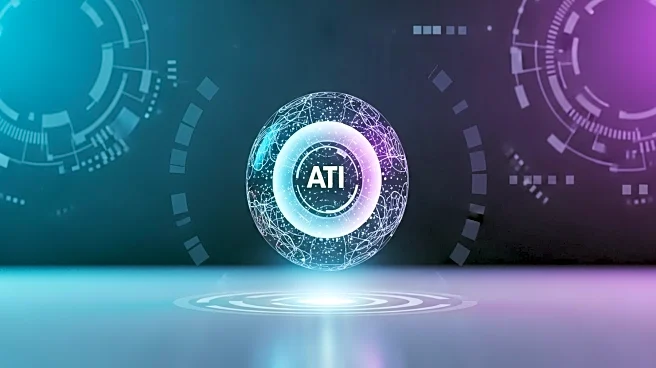What's Happening?
The landscape of brand visibility and consumer interaction is undergoing a significant transformation with the rise of AI agents. These AI-powered assistants are becoming the new digital gatekeepers, moving beyond traditional search engines. Brands are now required to shift their focus from merely optimizing for search visibility to delivering seamless, personalized experiences. This involves understanding user intent and providing intelligent orchestration and fulfillment. AI agents are capable of interpreting user intent and taking meaningful actions, such as booking appointments or managing schedules, thereby eliminating decision-making processes for users. This shift necessitates brands to invest in fulfillment architecture that is agent-ready, structured, and trustworthy.
Why It's Important?
The emergence of AI agents as digital gatekeepers marks a pivotal shift in marketing strategies. Brands that adapt to this change stand to gain a competitive edge by delivering personalized experiences that align with user intent. This transformation impacts how brands measure success, moving from traditional metrics like last-click attribution to relationship intelligence. Companies that fail to synchronize their data with AI systems risk losing customers. The shift from SEO to AIO (Artificial Intelligence Optimization) requires brands to optimize for discovery, delivery, and measurement within AI ecosystems. This evolution in consumer interaction could redefine marketing, sales, and product delivery strategies.
What's Next?
As AI agents continue to evolve, brands will need to focus on building infrastructure that supports these new interactions. This includes ensuring real-time data availability, integrating ticketing APIs, and maintaining up-to-date information. Marketing measurement will undergo reinvention, with a focus on tracking brand mentions across AI systems and analyzing agent-driven conversions. Companies are investing in technologies that facilitate seamless web-to-app handoffs and prevent fragmented attribution. The transition from SEO to AIO will require brands to adapt quickly to remain competitive in the AI-driven future.
Beyond the Headlines
The shift towards AI-driven consumer interaction raises ethical and privacy concerns. Brands must navigate the balance between personalization and data privacy, ensuring that AI systems do not compromise user trust. Additionally, the reliance on AI agents could lead to increased automation, potentially impacting employment in traditional marketing roles. The long-term implications of AI-driven ecosystems may include changes in consumer behavior, with users expecting more immediate and personalized outcomes from their interactions with brands.









